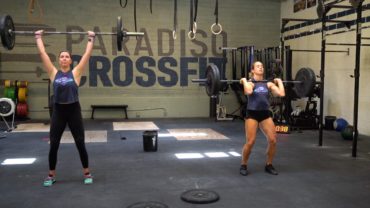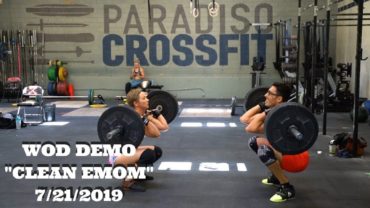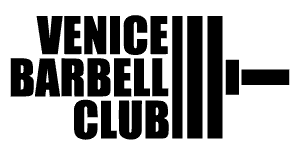Why Snacking Makes You Weak, Not Just Fat!
I came across this article today thanks to Katy Rickman over at Karma Crossit. I thought it did a great job explaining some basics. Be educated and enjoy! Click on the title of the article if you want to check out the entire blog. 🙂
All of us want to stay as strong and fit as we can, with as little effort as we can…and the profusion of ridiculous exercise gadgets and workout books testifies to our desire to look like fitness models, while living and eating like Homer Simpson.
However, the government-recommended “food pyramid”—and its inevitable consequence, sugar (‘carbohydrate’) addiction—sabotages our efforts to be healthy and strong. Snacking doesn’t just make us fat…it makes us weak.
To explain why, we need to review some metabolic facts.
Insulin: The Storage Hormone
Our bodies strongly regulate ‘blood sugar’, which is just the amount of free glucose in our bloodstream. Under normal circumstances, this is about a teaspoon.
If we don’t have enough glucose in our blood, our cells start dying very quickly, starting with our brain. If we have too much, it slowly poisons the kidneys, eyes, heart, and circulatory system—and we experience all the complications of untreated diabetes, such as numbness, blindness, muscle wasting, gangrene, renal failure, and heart failure.
When we eat and digest food, its nutrients are absorbed into our blood, through our intestines. If that food contains glucose (‘starch’, ‘carbohydrate’, ‘sugar’)—or certain amino acids (‘protein’)—our pancreas secrete a hormone called insulin, which signals cells all over our bodies to take these nutrients out of our bloodstream and store them. This keeps our blood sugar from getting too high.
Since there’s a lot more than a teaspoon worth of glucose in most foods (look on the ingredient label: most of “Total Carbohydrate” is glucose), it’s obvious that both our pancreas’ production of insulin, and our cells’ response to insulin, has to be solid and well-regulated, or we will have major health problems—which we call diabetes.
(Diabetes is just long-term glucose poisoning. Type I diabetes is when your blood sugar stays high because your pancreas can’t make insulin. Type II diabetes is when your blood sugar stays high because your body stops responding to insulin.)
Here’s another important metabolic fact: unlike body fat, which is a dedicated organ for storing energy in the form of…fat, our body has no dedicated storage organ for protein. (Recall that “protein” is just chains of amino acids.) Our body’s tissues—primarily our muscles—do double duty here. Muscles move our bodies, and they provide a storage reserve for our body’s daily protein needs.
This is why long-term fasting, or protein deprivation, causes you to lose muscle: your body disassembles it for the amino acids it needs every day to maintain itself.
Insulin, Proteolysis, and Protein Synthesis: It’s Not Just About Blood Sugar
Now we are getting to the meat of the story.
There is an interesting fact about insulin: it doesn’t just cause our bodies to store fat, and it doesn’t just cause our bodies to try and build muscles and tissues. It also tends to inhibit proteolysis, which is the process by which our bodies break down our own tissues (again, primarily our skeletal muscles) for protein.
But it doesn’t always do this.
Am J Physiol. 1993 Nov;265(5 Pt 1):E715-21.
Acute hyperglycemia enhances proteolysis in normal man.
Flakoll PJ, Hill JO, Abumrad NN.
Skipping to the middle of the text:
“Previous studies from our laboratory have indicated that the effect of insulin on suppressing proteolysis is highly dependent on the availability of plasma amino acids. […] At maximal insulin levels…protein breakdown was suppressed by approximately 90% when amino acids were available compared with 45% when hypoaminoacidemia was allowed to develop. These studies were performed with glucose fixed at euglycemic levels.”
So we know that insulin + available protein = 90% reduction in proteolysis, while insulin + no available protein = 45% reduction in proteolysis. Now we return to the abstract:
“ABSTRACT: The influence of hyperinsulinemic-hyperglycemia on protein and carbohydrate homeostasis was assessed using L-[1-13C]-leucine and [3-3H]glucose combined with open-circuit indirect calorimetry. After a 30-min basal period, healthy human volunteers were subjected to two sequential experimental periods (150 min each) during which insulin was continuously infused at a rate to elicit maximal effects (10.0 mU.kg-1 x min-1, resulting in 220-fold basal levels) in conjunction with an infusion of L-amino acids to maintain euleucinemia. Plasma glucose was maintained near basal (94 +/- 2 mg/dl) during period I and at twofold basal (191 +/- 4 mg/dl) during period II. The endogenous rate of leucine appearance (index of proteolysis in mumol.kg-1 x h-1) dropped by 80% from basal during period I (P < 0.01) but only by 44% during period II. […] The present study demonstrates that, during hyperinsulinemia, acute elevations of plasma glucose to two times basal levels result in a marked stimulation of whole body proteolysis during hyperinsulinemia.”
And now we also know that normal blood sugar + maximal insulin = 80% reduction in proteolysis, whereas high blood sugar + maximal insulin = 44% redulction in proteolysis.
These are two very interesting sets of facts. Here’s the summary:
- Insulin increases whole-body protein synthesis…but the protein has to come from somewhere.
- If protein is available in the bloodsteam and your blood sugar is normal, insulin almost completely stops the process of breaking down your muscles for your protein needs. This makes sense: why break down muscle when protein is already available?
- If protein is unavailable in the bloodstream, insulin only halfway stops this process. This also makes sense: if protein is unavailable from the food you ate, you still need to get it from somewhere.
- If your blood sugar is high (twice normal), insulin stimulates whole body proteolysis.
And here’s the takeaway:
Every time you stimulate insulin production by eating carbohydrates, you need to eat some complete protein with it—or instead of rebuilding your muscles and tissues, your body will continue to disassemble itself to get that protein. And the higher your blood sugar spikes, the more your body will disassemble itself anyway.
Are you seeing the problem? When you eat, insulin signals your body to stop eating itself…but only if you’ve eaten protein, and only if your blood sugar isn’t spiking.
Every time you eat candy or drink a soda by itself, not only are you signaling your body to store fat…you’re disassembling your own muscle.
It’s even worse. That ‘healthy’ mid-afternoon apple or orange, to keep your blood sugar up? Same problem. And remember the food pyramid? Those “7-11 servings of heart-healthy whole grains” we’re all supposed to be eating every day? How are you going to stuff eleven servings into three meals?
You’re not: you’re going to snack.
That’s what we’re advised: never, ever let yourself get hungry. Keep your bloodstream filled with sugar and insulin at all times! So that’s what we do. Crackers, bagels, muffins, corn chips, rice cakes, cookies, danishes…all low-fat, of course.
And, even worse, low-protein. Being grain and sugar-based, snack foods contain little protein—and the protein they do contain is incomplete. (Corn and wheat are deficient in lysine, one of the essential amino acids.) If your body is short on any essential amino acid, it will still have to disassemble itself to get the one it needs, regardless of how much of all the others are available.
Every time you eat high-sugar, protein-deficient food—even whole fruit and “heart-healthy complex carbohydrates”—you’re making yourself fatter and weaker.
In support of this theory:
Ann Surg. 2005 Feb;241(2):334-42.
Influence of metformin on glucose intolerance and muscle catabolism following severe burn injury.
Gore DC, Wolf SE, Sanford A, Herndon DN, Wolfe RR.
“Metformin administration was also associated with a significant increase in the fractional synthetic rate of muscle protein and improvement in net muscle protein balance. Glucose kinetics and muscle protein metabolism were not significantly altered in the patients receiving placebo.
CONCLUSIONS: Metformin attenuates hyperglycemia and increases muscle protein synthesis in severely burned patients, thereby indicating a metabolic link between hyperglycemia and muscle loss following severe injury.”
Why would giving a diabetes drug to burn victims cause them to heal more quickly? Because metformin stops the liver from making glucose—lowering blood sugar.
Conclusion: Snacking Makes You Fat, And Snacking Makes You Weak
This explains a lot, doesn’t it? Why so many joggers can pound out hundreds of miles and still squeeze up muffin tops? Why so many cyclists can spin for thousands of miles and still have to stuff a beer gut into their Lycra? Why even the skinny ones often look like famine victims—not like strong, healthy, capable humans? And why you never look like the people in the magazine ads, no matter how long you spend on the hamster wheels at the gym?
This helps explain why so many vegans (especially raw vegans) appear scrawny and malnourished. Fruit might have some nutrients in it, but it’s still essentially protein-less sugar.
It also helps explain why obesity with Type II diabetes is so difficult to recover from: high blood sugar keeps you from building muscle like a normal person. (There are many other positive feedback loops in obesity and diabetes…this is just one of them.)
Not only does that post-workout bran muffin contain more calories than you burned—it’s making you fat, and you’re still losing the muscle you’re trying to build.
It’s not the “food pyramid”—it’s the “fat pyramid.”
Stop eating birdseed (‘grains’) and diesel fuel (‘vegetable oil’).
Start eating real food.
Live in freedom, live in beauty.
JS
Postscript: How Do I Stop Snacking, And What Do I Eat Instead?
Answer: eat real food and you won’t need to snack. Here’s how I stay lean and strong with very little effort.
For more information, you can read my three-part series on carbohydrate addiction: Mechanisms of Sugar Addiction, “Adjacent To This Complete Breakfast!”, and The Myth Of Complex Carbohydrates.
By J. Stanton | March 29th, 2011 | Category: Science
Tags: blood sugar, carbohydrate addiction, complex carbohydrates, diet, fat pyramid, food pyramid, how to stop snacking, paleo, snacking makes you fat, snacking makes you weak


















